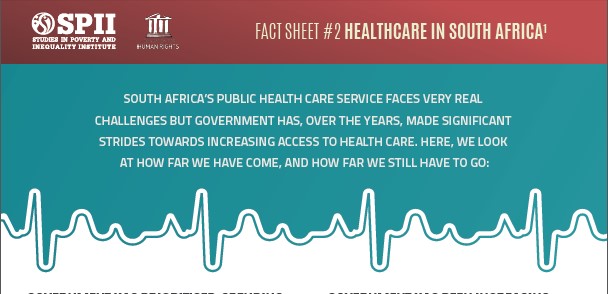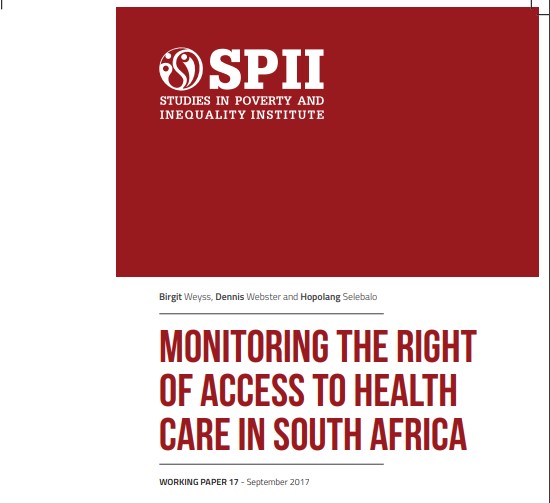Monitoring the Right to Health Care
Access to quality health care plays a vital role in any country’s development as it has significant implications for policy and overall improvement in living standards. South Africa has a fragmented two-tiered system of health care which it largely inherited from apartheid. On the one hand, there is the private health sector which is exclusive, providing high quality health care at a premium cost financed through medical aid schemes and out-of-pocket payments. This sector serves a select minority, mainly the middle-class and elite. On the other hand, the public health care system is besieged with problems of maladministration, human resource constraints and suffers from shortages in medical equipment, facilities, and adequate medication. This is the sector that is responsible for the health care needs of 80% of the population.
SPII’s Policy Brief 2: Monitoring the right to health care in South Africa looks at the attainment of the right to health care in public health facilities including clinics and hospitals since 1994.
SPII also conducted primary research in Zandspruit informal settlement in 2012/13 in relation to primary health care and social security. The findings from this research can be found in The right to social security and primary health care in Zandspruit informal settlement South Africa.
The working paper was updated in 2017 to reflect the latest figures. Our updated paper, Working Paper 17: Monitoring the Right of Access to Health Care in South Africa, can be downloaded here.













